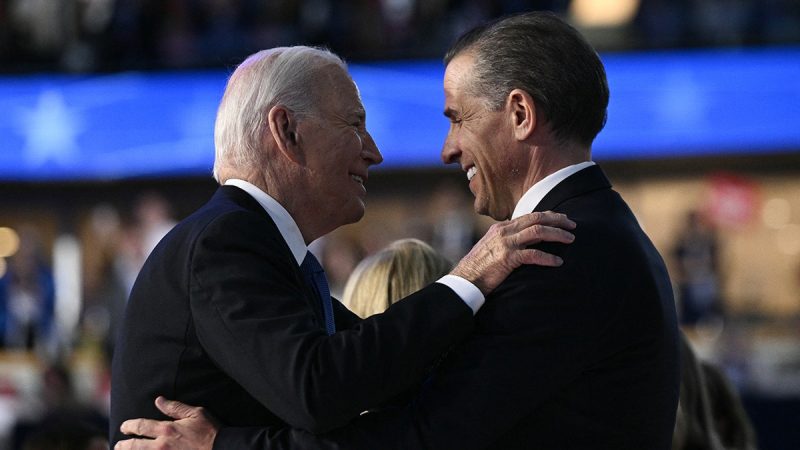In a surprising turn of events, President Joe Biden raised eyebrows when he made the decision to pardon his son, Hunter Biden. This controversial move has sparked intense debate across the political spectrum, with many questioning the rationale and implications behind the President’s decision. However, the focus has now shifted as calls grow louder for Biden to extend his pardon powers to another prominent figure: former President Donald Trump.
The Democrats face backlash from various corners as many argue that Biden’s decision to pardon Hunter sets a dangerous precedent. Critics point to the potential conflicts of interest and nepotism involved, questioning whether the pardon was issued as a means to shield the Biden family from legal scrutiny. Additionally, concerns have been raised about the lack of transparency surrounding the pardon process, further fueling skepticism towards the administration’s integrity.
Despite the controversies surrounding Hunter Biden’s pardon, attention has now turned to the possibility of President Biden extending a pardon to his predecessor, Donald Trump. This proposed move has ignited a fresh wave of debate, with proponents arguing that a pardon for Trump could help heal the deep political divides that have plagued the country in recent years.
Advocates for a Trump pardon argue that it could serve as a powerful symbol of reconciliation and unity, sending a message of forgiveness and moving beyond the partisan animosity that has gripped the nation. By pardoning Trump, Biden could potentially pave the way for a more cooperative and respectful political environment, where adversaries are able to find common ground and work together towards shared goals.
On the other hand, opponents of a potential Trump pardon are concerned about the message it may send to the American public. Many argue that pardoning Trump would be interpreted as a signal that powerful individuals are above the law, undermining the principles of accountability and justice that are fundamental to a functioning democracy. The specter of political favoritism looms large, with critics warning of the negative repercussions that a Trump pardon could have on the public’s trust in the government’s commitment to upholding the rule of law.
As the debate over presidential pardons continues to unfold, President Biden finds himself at a critical crossroads. The decisions he makes regarding who to pardon and why will have far-reaching implications for the integrity of the presidency, the public perception of the government, and the future of American politics. In a deeply polarized and contentious political landscape, the issue of pardons has emerged as a lightning rod for controversy and scrutiny, placing the Biden administration under intense pressure to navigate these treacherous waters with wisdom and foresight.




























